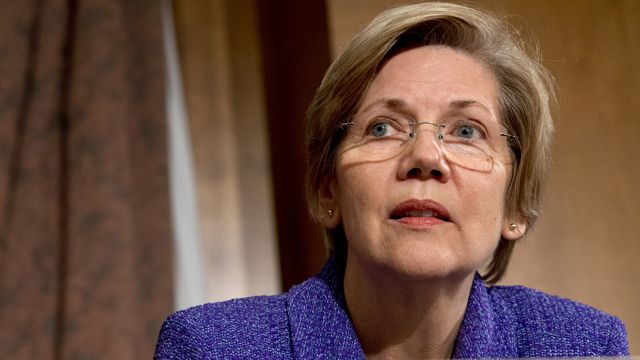This post first appeared at ThinkProgress.

The Postal Service (USPS) could spare the most economically vulnerable Americans from dealing with predatory financial companies under a proposal endorsed over the weekend by Sen. Elizabeth Warren (D-MA).
“USPS could partner with banks to make a critical difference for millions of Americans who don’t have basic banking services because there are almost no banks or bank branches in their neighborhoods,” Warren wrote in a Huffington Post op-ed on Saturday. The op-ed picked up on a report from the USPS’s Inspector General that proposed using the agency’s extensive physical infrastructure to extend basics like debit cards and small-dollar loans to the same communities that the banking industry has generally ignored. The report found that 68 million Americans don’t have bank accounts and spent $89 billion in 2012 on interest and fees for the kinds of basic financial services that USPS could begin offering. The average un-banked household spent more than $2,400, or about 10 percent of its income, just to access its own money through things like check cashing and payday lending stores. USPS would generate savings for those families and revenue for itself by stepping in to replace those non-bank financial services companies.
Those companies are among the most predatory actors in the money business. Payday loans with annual interest rates well north of 100 percent suck paying $520 to borrow $375. After decades of operating in a regulatory blind spot and ducking state-level reforms, the payday lending business now faces a crackdown from the Consumer Financial Protection Bureau. The threat of new rules for short-term cash loans in general has caused traditional banks to stop offering deposit-advance loans with similar features.
But while ending triple-digit interest rates and fine-print tricks is a good thing for consumers, it doesn’t reduce the demand for those financial services. The USPS could slide into that space and meet that need without preying upon those communities. “Instead of partnering with predatory lenders,” David Dayen writes in The New Republic, “banks could partner with the USPS on a public option, not beholden to shareholder demands, which would treat customers more fairly.” America’s post offices are an ideal physical infrastructure for furnishing these services to communities currently neglected by banks. Roughly six in 10 post offices nationwide are in what the USPS report calls “bank deserts” — zip codes with either one or zero bank branches.
Doing business in those communities in a more ethical fashion would still be profitable enough to inject about $9 billion into the struggling federal mail agency’s books. The USPS is dealing with a fiscal crisis, one largely manufactured by Congressional choices. The agency gets no taxpayer money for its operations but is still under Congress’s authority, and lawmakers have used that authority to impose arbitrary financial requirements and service constraints that have the post service on the verge of bankruptcy. USPS is legally obligated to hold assets in its pension funds that cover the next 75 years of projected pension costs, a unique and crippling requirement that Congress refuses to lift despite evidence that it is almost solely responsible for the agency’s financial woes.


